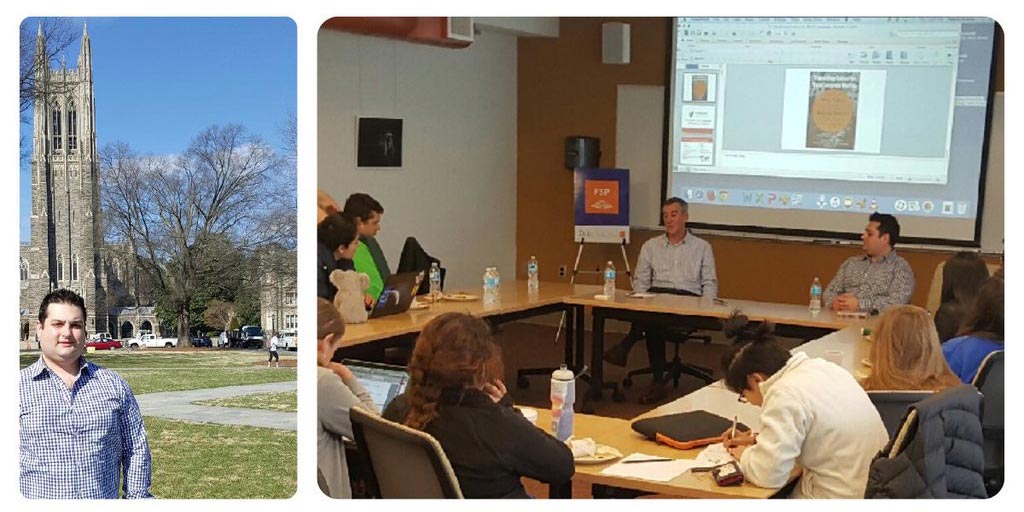
Visiting Duke University
Earlier this year, I was honored to speak at Duke University on this very subject. As Vice President of Marketing and Sales, I, spoke to students at the prestigious university, touching on all aspects of translation localization in an effort to showcase the importance of translation project management from an agency perspective. By working with marketing departments, project managers, and technical writers from businesses, I shared with students, translation localization is more than just turning words into another language. It’s about embracing a culture, adapting to it, and making their future consumers and clients feel comfortable and confident in their company. The presentation was done in a panel format in tandem with a professional translator, Mike Collins. While Mike spoke about the specifics that happen during the translation process, I spoke from the professional translation company agency perspective.
From a Professional Translation Company Viewpoint
In my talk, I also made sure to tell the Duke University students why going global is so important. In the United States, there are many businesses that have products and services global citizens need and want, not to mention that there are more people outside of the primarily English-speaking United States than in. With those facts, I encouraged the students to think about the translation and localization processes sooner rather than later when engaging in a global business. Localization shouldn’t be an afterthought to a business; it should be one of their primary focuses.
My presentation also included information on the importance of translation and what makes it such a necessary step for a global company. According to Common Sense Advisory, 74.2 percent of consumers were more likely to buy a product if it had information in their own language. On the flip side, the European Commission conducted research that found 82 percent of consumers were less likely to buy goods online if the site was not in their native language. I spoke about the comfort level of consumers and how finding that a product or service they wanted provided a website in not only their native language, but their native tone, made a huge difference.
Localization done right
With my experience here at Interpro, I was also able to discuss the complexities of a client asking for their website to be translated and localized. I gave an example in my speech about a client asking for a Portuguese translation and that my first task would be to specify the market. Is a client looking to expand in Europe or Brazil? While the languages are similar, they are different and require a different set of translators in order to localize accurately. It’s incredibly important for any professional translation company to not only have native speakers to tackle the translation and localization, but ensure that they are located in the country you are looking to market to. This ensures that the translators are immersed in the culture, and have the firsthand knowledge of the market.
Final thoughts
As the global market increases, it’s important for the future generation to know just how much of a difference localization and translation can make to a company, as well as the specifics of it. I hope that the students were able to gather the importance of working with a professional translation company versus trying to do translations via an automated tool. I was incredibly proud to speak at Duke University and Interpro hopes that with its experience, it can continue to educate and influence the future on global market translation needs.
Interpro Speaks at Duke University — Translating Culture for World Language Markets


